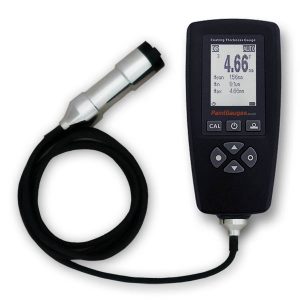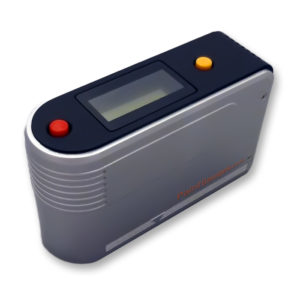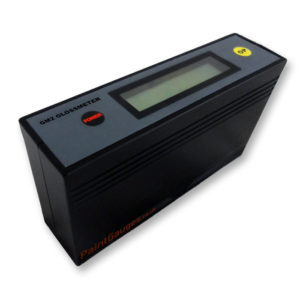The marine industry uses a range of materials in construction of vessels, both to their interiors and exteriors.
Certain segments, such as the yacht market, can have exacting specifications and customers with high expectations. Contracts may include specifications, for example of paint thickness on or gloss level of exterior or interior finishes. In light of this, quality inspection of work undertaken is of paramount importance from contractual, customer satisfaction, and reputational perspectives. The use of test equipment than can provide quantitative measurements of these specifications is important to assess work and provide evidence of results.

Coating thickness measurement
Coatings are applied to ship and boat interior and exterior surfaces for both protection and aesthetic purposes. An adequate coating thickness to metal hulls is important to provide adequate corrosion protection. The dry film thickness of paint applied can be measured non-destructively using a paint thickness gauge. It is possible to manually record readings or use a coating thickness gauge that can download measurements to a PC, such as our FN Max Ext coating thickness gauge.
These tools are typically used by both manufacturers and refurbishers to check that their work meets required specifications. Customers and their inspection agents also use these tools to check that contracted work has been performed to specification.
Gloss measurement
Over time, gelcoats and paint can change in appearance due to exposure to the elements, be that UV light or saltwater and other contaminants. In this respect, a newly applied coating can have a different appearance to a pre-existing coating. Likewise, refurbishment or polishing or an aged surface can lead to improvements in gloss levels. It is possible to measure differences and changes in gloss level using a gloss meter.
Gloss levels of yacht interiors, whether they be new fitouts or refurbishments, are also candidates for gloss measurement. Varnished surfaces, lacquers, wood, plastic, stone, and laminates are all surfaces that can be inspected with a gloss meter. In some cases, rather than simply requesting a gloss or matt finish to certain surfaces, a customer may specify desired gloss levels in gloss units (GU). A gloss meter is an invaluable tool to quantitatively measure gloss levels, verify results and demonstrate that they meet desired specifications.
Thickness measurement
Ship and boat hull thicknesses are inspected to ensure soundness and assess need for any repairs. Commonly this is undertaken during maintenance or at the time of a pre-purchase inspection. Steel hulls maybe subject to a less scientific hammer test by a technician. An ultrasonic thickness meter can accurately and quantitatively measure the thickness of a boat hull made of stell, aluminium, or fibreglass. The use of this type of meter provides fast, easy measurements.
-
 FN Max Ext Coating Thickness Gauge£379.99
FN Max Ext Coating Thickness Gauge£379.99 -
 GM1 Gloss Meter£249.99
GM1 Gloss Meter£249.99 -
 GM2 Gloss Meter£379.99
GM2 Gloss Meter£379.99
